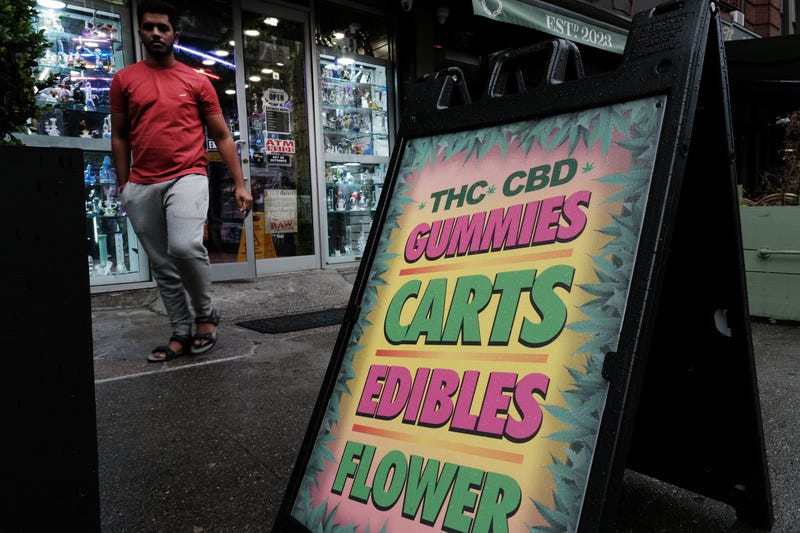
The lawmaker who's trying to ban THC edibles from being made and sold in Louisiana says those products amount to a public health crisis in Louisiana, but the CEO of one of the state's THC edible manufacturers says the ban would drive businesses and workers--and their tax dollars--out of the state while driving their customers back to the black market.
In Senate Bill 237, Senator Thomas Pressly wrote that the THC ban is needed to protect the health and welfare of Louisiana residents. A bill passed in 2019 allows products derived from industrial hemp to contain up to a half a milligram of THC. Pressly says he's concerned that those products are sold in places where minors could possibly get their hands on them.
"I've got real concerns over the lack of regulatory ability from our ATC to go in and stop some of the bad actions that are going on," Pressley said. "These products are getting individuals high, and in fact, things such as a gummy have multiple servings in one gummy bear."
Pressly (R-Shreveport) adds that lawmakers never would have allowed hemp producers to include up to half a milligram of THC in their products if they would have known they could be used as substitutes for recreational cannabis.
"There's 21 attorney generals (sic) around the country that sent a letter to the federal government saying there's a health and safety crisis that has been created through the THC in the industrial hemp products that are being sold throughout many areas of the state (and) many areas of the country," Pressley said.
According to that letter, the 21 attorneys general who signed it say they're concerned about "poisonings from poorly manufactured products, products with misleading labels, and consumption by individuals who are under the age of twenty-one."
However, the head of a New Orleans THC edible manufacturer says the products made in Louisiana are well-regulated and produced with the safety of consumers in mind. He says this bill could cause people to return to street drug dealers and to businesses abandoning Louisiana.
"They have the opportunity to buy safe, tested, and taxable products," Joe Gerrity, CEO of Crescent Canna said. "These products are not only far safer than allowing people or forcing people to return to the black market to buy completely untested, unregulated, untaxed products from drug dealers."
Gerrity says the legislature gave authorities the ability to regulate THC products and their sales when they passed the industrial hemp law five years ago.
"The legislature made a specific allowance for THC (and) created a process by which you can register these products with the Department of Health and have your businesses and distributors licensed through the ATC," Gerrity said. "There's no loophole. This was deliberate."
Gerrity says he and other THC-based businesses have followed the law in setting up and operating their businesses. He says the state stands to lose millions of dollars in tax revenue if the bill passes. Gerrity says several dozen workers could also lose their jobs.
"I know there are some 3,000-some-odd hemp licenses in Louisiana. I anticipate that about 200 to 300 businesses will be shut down entirely (and) potentially 2,000 to 3,000 jobs lost," Gerrity said. "The idea that Louisiana can create an industry and then shut it down overnight would just further cement this state as being anti-business, anti-free market, and a horrible place for anyone to start their business."
Gerrity says if Senate Bill 237 becomes law, the state will see the public health crisis that Pressly claims he's trying to thwart.
"The demand for these products is extremely high, and we continue to pull people from the black market into the legal market," Gerrity said. "If Louisiana moves forward with banning these products, we will see tens of millions of dollars lost for the state and in the hands of the black market and literal drug dealers."
According to Gerrity, several THC business owners have vowed to relocate their other businesses out of the state and never return to Louisiana if Senate Bill 237 is passed and signed into law by Governor Jeff Landry. Gerrity says he and other THC edible manufacturers will be at the state capitol when the House Criminal Justice Committee take up the measure. A hearing date still has not been set.

